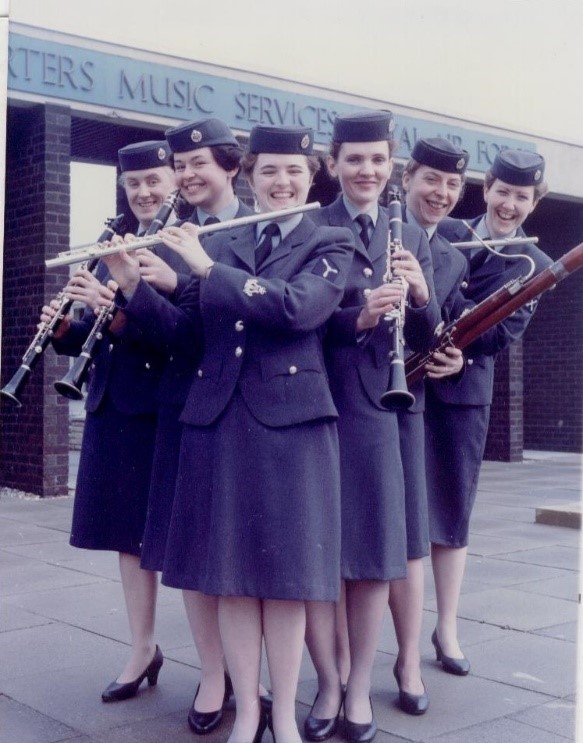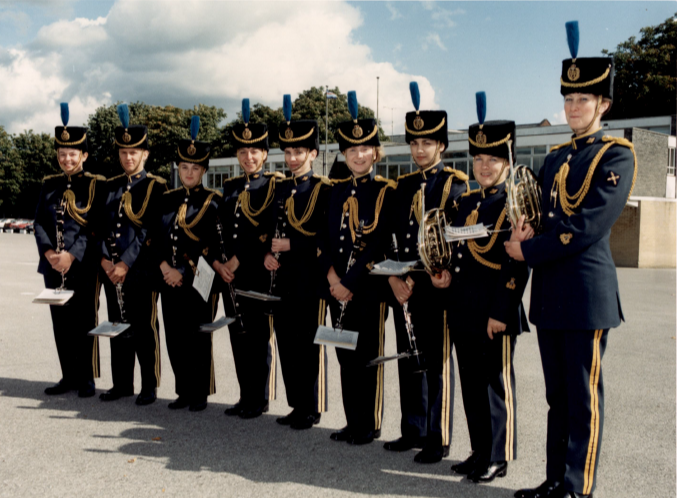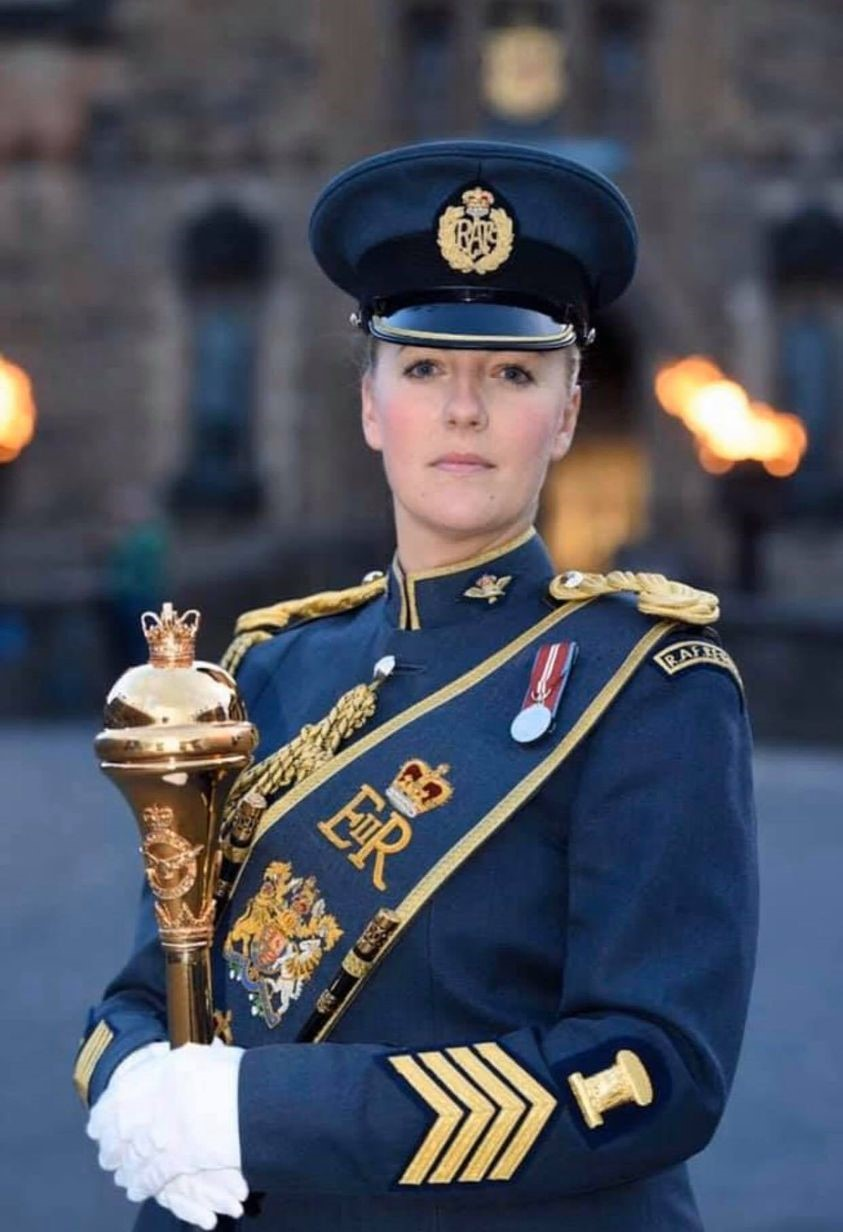Thirty years ago, the Royal Air Force was to make a decision which would change the landscape of British Military music. Although there had been a Women’s Royal Air Force Band since 1947, it was disbanded in 1972 and there followed a period when the Musician Trade was not available to women. In 1991 the RAF became the first of the three Services to allow both male and female Musicians to work side by side, when 6 female Musicians were accepted into training and were subsequently posted to the Central Band of the Royal Air Force.
To set the scene, all four UK based RAF Bands were deployed on Operation GRANBY in the Gulf during late 1990 until the Spring of 1991. The female Musicians arrived at RAF Swinderby for their first day of Recruit Training on 16 January, which coincided with the first day of Operation DESERT STORM. Some 42 days later, when the US President, George Bush declared a ceasefire, the female Musicians arrived at RAF Uxbridge to commence their musical duties.
Corporal Sue Gee (née Smith) recalls:
It was quite exciting to arrive at RAF Uxbridge following Recruit Training. I remember having a lot of uniform fittings, and in particular, having to have a pair of George Boots specially made for me – as they didn’t make them that small! There weren’t many Musicians around at the time as most were serving in the Gulf, it was an honour to welcome them back when they returned.

L-R Junior Technician Suzanne Faithful, Junior Technician Rebecca Bailey, Senior Aircraftwoman Sue Smith, Junior Technician Sheila McKirdy, Junior Technician Pat Goddard and Junior Technician Louise Holmes.
The RAF was the trailblazer. Both HM Royal Marine Band Service (HMRMBS) and the now Royal Corps of Army Music (RCAM) were watching on with interest to see the results of this change in policy. They quickly followed suit the following year when the HMRMBS accepted its first female Musicians, and RCAM moved to integrated bands, following the disbandment of the Women’s Royal Army Corps.
On 12 September 1992, RAF Music hit the national headlines, when for the first time in 155 years, the Central Band of the RAF marched onto the forecourt of Buckingham Palace to Change the Guard with 9 female Musicians in its ranks.

Corporal Sue Gee (née Smith) remembers:
We started to realise that there was a huge significance to changing the guard, as there was a lot of media interest even before the ceremony. The rehearsals were filmed, and we were interviewed for TV and newspapers. I remember, when we arrived at Wellington Barracks in the morning, we went to the newsagents and realised we were on the front page of most national newspapers – there was even an article in the Washington Post! There were huge crowds and as we marched off, we could hear people in the crowd pointing out the women in the Band. It was an amazing experience and I felt extremely proud to be a part of this historic occasion.
Twenty-five years on in 2017, RAF Music appointed the first female Deputy Drum Major since the disbandment of the Women’s RAF Band in 1972. Sergeant Hilary Rosenthal was appointed Deputy Drum Major of the Band of the RAF Regiment. One of her first engagements was to lead the Band at the Royal Edinburgh Military Tattoo, an event that attracts audiences of around 220,000 every year as well as a TV audience of millions.

Sergeant Hilary Rosenthal recalls:
Becoming Deputy Drum Major was a massive personal achievement and leading the Band in front of 7000 people on my first engagement is something I will never forget.
Written by Corporal Ann Joyce
![]()









